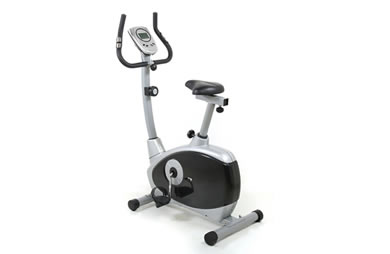By now you’ve been working on your New Year’s resolutions for roughly four weeks. Have you stepped on the scale this week only to be discouraged, frustrated, angry, sad, or some other combination of negative emotions? You’re not alone! Before you give up or quit, let’s discuss some options. Do you really want this year to end up like last year and the years before? Do you want to quit on your resolutions because a piece of equipment told you that you weren’t doing well?
I have a history of writing blogs that are essentially rants on the scale. In my humble opinion, it should play a minor role in determining whether or not you’re achieving your healthy lifestyle goals. (I'm not the only one who feels this way! Read ~INDYGIRL's blogs 10 Signs You are Getting Healthier Even if the Scale Doesn't Move and Lighten Up about Weighing In, too.) If the scale should be designated as minor bench player, who should the star players be?
Let’s use the example of a baseball team to picture what I mean. You know the team has a pitcher, catcher, base players, an infielder and outfielders. They are all critical parts to the team, but none of them play the same role. You also need every member of the team in order to play or to win. So let’s consider some different players for your team:
- Measurements: You should take your measurements and log them into SparkPeople. When you start out with a strength training program your body will start to go through many physical changes. Initially this can show up as a weight gain but while the scale says you’re doing bad, measurements are faster to show that you are making changes.
- Annual Physical: You should check in with your doctor when starting a new workout regime, especially if you haven’t been working out in quite a while. Getting a baseline documentation of things like your cholesterol, various blood work levels, heart rate etc. are good numbers to have. Being able to see improvement in these things over the long haul are important factors.
- Resting Heart Rate: As your physical strength and aerobic conditioning change your body, you are likely to see a decrease in your resting heart rate. Find your RHR now and track that over time.
Fitness Baselines: Try taking a few fitness tests like how many situps or pushups you can do in one minute. Test how far you can jog/walk in five minutes. These are tests that you can repeat once a quarter to see if you are improving. (4 Fitness Tests You Can Do at Home)
- SparkPoints: Set a goal for a number of SparkPoints that you want to earn for the month. This helped me in the past to make sure I was reading articles, working out, logging food, and interacting with other members. Those things helped me learn, get connected to a vital support group, and develop consistency.
- Panic Message Board: Before you throw in the towel, ask for help! This is one of the players on your team that is like a relief pitcher. When the going gets tough, call in some relief in the form of support from other members, and experts.
- Workout Journal: Keep track on the SparkPeople Fitness Tracker how much you are lifting. It’s a good way to see improvement over time as you increase your weights, reps, etc.
- Blogs: Make sure to post a blog when you reach new goals. I like to go back and read about the first time I could fit in my daughter's jeans, or the time my son commented about how skinny I looked. Those things keep me going on days when the scale is a demonic influence.
- Spark Streaks: Set up a streak to track and watch it grow. I set a goal to have at least 90 minutes of fitness in my week, and have maintained that for more than 118 consecutive weeks.
This is, after all, a lifestyle and not a scalestyle!
Do you use any of these tools to measure your lifestyle change successes? Which one is of the most value to you? Are you giving the scale too much power over your feelings?
|
|




.jpg)

















